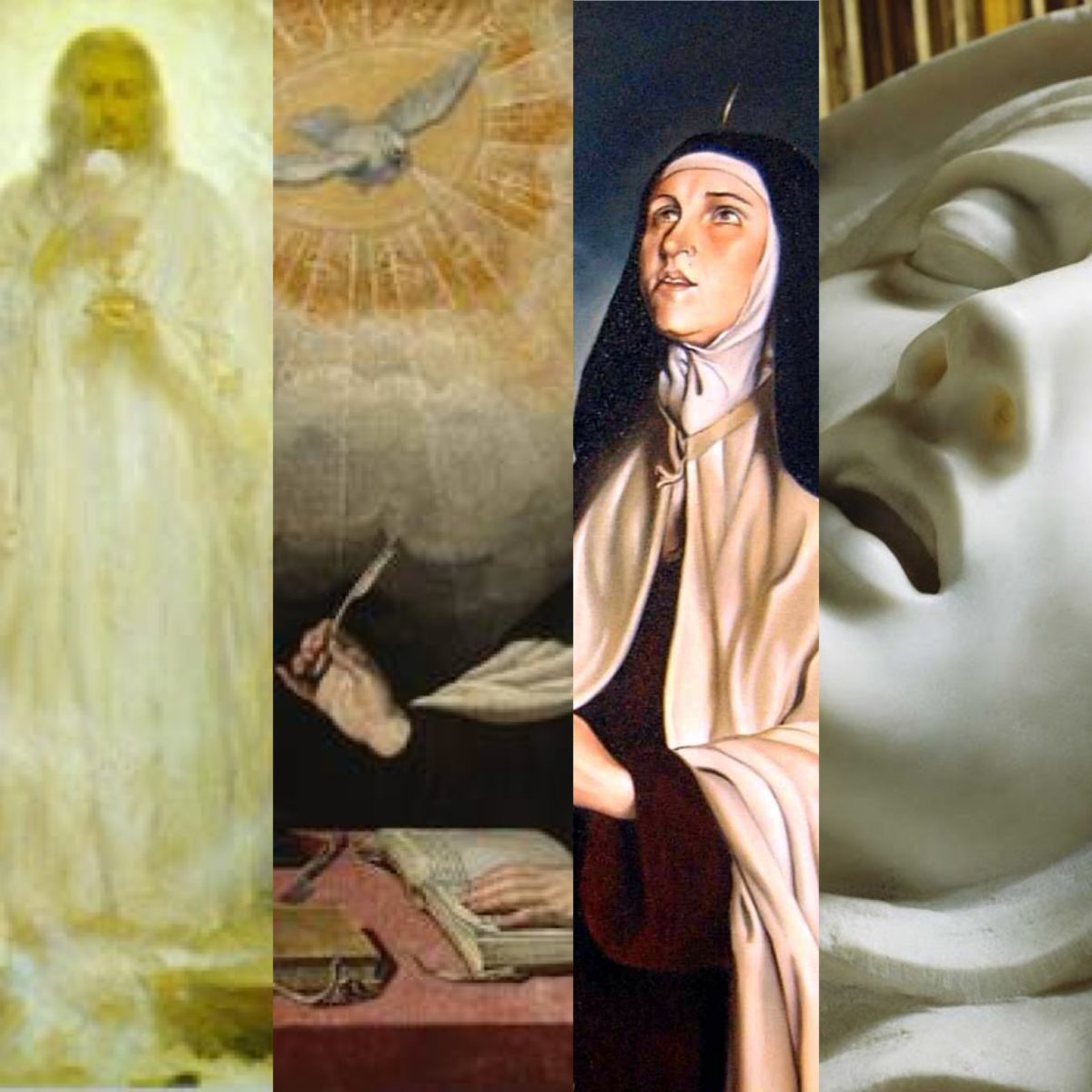St. Teresa of Jesus Novena
O most loving Heavenly Father! We thank you for the great gift you gave us through your beloved St. Teresa of Avila, virgin and doctor of the Church. Her life was a great example of prayer, sacrifice and faith in You. We humbly pray for her most holy intercession… (Mention your intentions)
St. Teresa, we know that you are a powerful intercessor because of your close relationship to the Holy Mother and Jesus through prayer. Open wide the doors to the interior castle of our hearts and souls so that we may know how to pray! Pray for us, that we may have the gift of prayer. St. Teresa of Avila, you are an example of prayerful holiness that we will try to follow. You are in heaven praising God. With your seat of honor, please beg God to bring me to eternal rest with you.
Our Father… Hail Mary… Glory be…
Saint Teresa of Avila, pray for us! Amen
About the author: Erin Foord has been a Secular Discalced Carmelite for 40 years. He served as President of the California-Arizona Provincial Council from 2014-2017. He gave this conference as part of an Ongoing Formation class for the Santa Clara , CA OCDS community.
St. Teresa of Avila, Our Holy Mother, a mystic, and Doctor of the Church, wrote this poem in the 16th century. It’s called St. Teresa’s Bookmark because, according to tradition this great Saint carried it around in her prayer book, where it was found after her death.
Nada te turbe, Nada te espante, Todo se pasa, Dios no se muda. La paciencia todo lo alcanza: Quien a Dios tiene nada le falta; Solo Dios basta.
Let nothing disturb you, Let nothing frighten you, All things are passing away:God never changes. Patience obtains all things, Whoever has God lacks nothing; God alone suffices.
— St. Teresa of Avila
Sometimes you may find this bookmark referred to as a prayer. Why is it not a prayer? Do you see how this simple wisdom represents the foundation of Carmelite prayer and spirituality? It provides an essential outline for living a spiritual life? As mentioned, it was placed in Saint Teresa’s breviary where several times a day it was a reminder for her reflection on Jesus Christ and living His joy, free from anger, resentment, fear and worry, and the needless suffering that results? Let’s look more closely at each line.
Let nothing disturb you.
When we are disturbed it is caused by clinging to disordered cravings and desires. For Carmelite seculars, our lives are characterized by living for God in the world. It is a balancing act; giving to God what belongs to God and to Caesar, the demands that the world requires. Most of us need some form of employment, to pay rent or mortgage, and to provide for the needs of our families. Living in the world we are constantly facing the temptation of how much is enough? At what point do our desires for …money, security, relaxation, pleasure, status, power, prestige, etc., become less about serving God and neighbor, and more about serving ourselves and our egos? Saint Teresa’s bookmark suggests it may be when we become emotionally invested in the outcome. Where the balance begins to shift from Thy will be done to my will be done. In the language of Saint John of the Cross, when we start to have these emotionally backed demands, we are forming inordinate attachments.
Saint John observes that anyone serious about loving God, must not “voluntarily” entertain self-centered pursuits of finite things sought for themselves. In other words, devoid of an honest association with God, our sole end and purpose. Saint Paul makes the same point to the Corinthians that, “Whether you eat or drink, or whatever you do, do everything for the glory of God.” (1 Cor 10:31) The issue for Saint John is not whether we use and enjoy created goods, but rather our desire for them and our attachment to them that does harm to our spiritual life. He explains, “…it is not the things of this world that either occupy the soul or cause it harm, since they enter it not, but rather the will and desire for them.” (Assent: Book 1,Chap. 3)
He clarifies that he is speaking of voluntary desires and not natural ones‚ for the latter are little or no hindrance to advanced prayer, as long as the will does not intervene with a selfish clinging. By natural desires the Saint has in mind, for example, a desire for water when thirsty, for food or the means to purchase food when hungry, for a habitable shelter, meaningful work, and for rest when fatigued. There is no necessary disorder in these attachments. To eradicate these natural inclinations, and to mortify them entirely is impossible in this life.
Of course, even natural desires can become unruly and exaggerated, wherein we seek to overly satisfy them, and they become ends in themselves. This provokes Saint Paul to lament, “For many, as I have often told you and now tell you even in tears, conduct themselves as enemies of the cross of Christ. Their end is destruction. Their God is their stomach; their glory is in their ‘shame.’ Their minds are occupied with earthly things.” (Phil 3:18-19)

